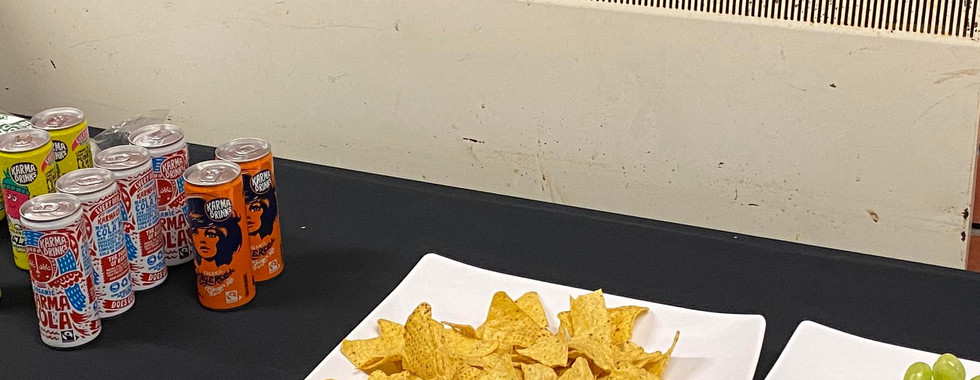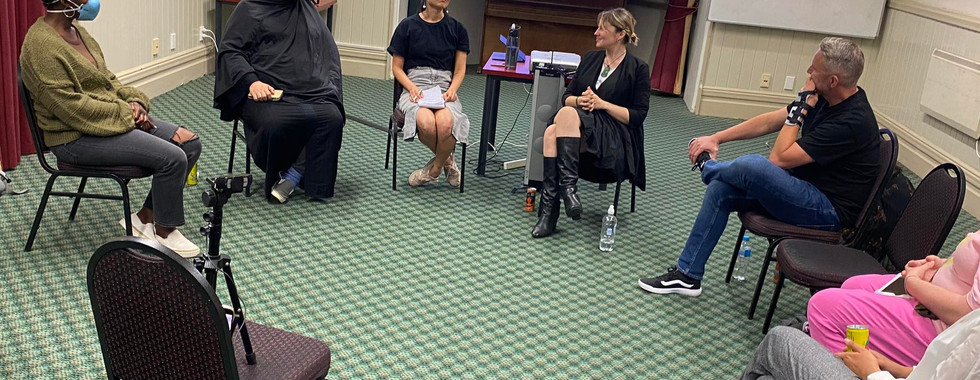Our first event for 2023 in Tāmaki Makaurau was a panel on accessibility and disability. We were joined by Tamara Grant, who also facilitated this event, Sun-Min Park, and Rafiqah Abdullah.
The hui began with speaker introductions and a deep dive into how disability has shaped their lives. This was then followed by a discussion of what disability and accessibility mean, and how these intersect with other aspects of the panelists’ identities as well as their practices. We then looked at some of the wider issues of accessibility within Aotearoa and, how some of the barriers that the speakers have come across that need to be addressed from an interpersonal to a structural level.
Key takeaways from the hui are that we need to acknowledge the unique skills and talents that neurodiverse people have, and create change through community and commitment to understanding and compassion. Everyone has the power to change things and to create space to normalize discussion of accessibility and disability issues! Accessibility is often an afterthought, and we all need to make it a priority to ask people what their access needs are.
How to take the kaupapa forward
You can continue learning:
Listen to the podcasts: What’s Wrong With You?, The Arts Access Podcast (hosted by Sam Morgan), ListenAble, Disability After Dark, The Neurodivergent Woman, The Loudest Girl in the Room, and Able Audio
Read blogs at All is for All and Arts Access Aotearoa
Read books like Growing Up Disabled in Australia (edited by Carly Findlay), Stim an Autism Anthology (edited by Lizzie Huxley Jones), and Disability Visibility by Alice Wong
Watch the Attitude docuseries What’s the Disabiliti-TEA? and Stella Young’s TEDx talk I’m not your inspiration, thank you very much
Upskill on the importance of language and framing here and here
You can show up:
Participate in NZSL Week, which will take place between May 9th and May 15th 2023
Attend events to support artists in the disability community, like Big J by Jacob Dombroski and Everybody Cool Lives Here, as well as Touch Compass
Follow disability activists and tags on social media, such as Carly Findlay, Nine Tame, Andrew Gurza, Chloe Hayden, Cathy Reay, Rafiqah Abdullah, Amy Claire Mills, and #disabilityreads
Support local businesses run by members of the disability community and organisations such as Xabilites run by Tamara Grant
Follow content creators on Youtube like Jessica Kellgren Fozard, Stevei Boebi, and Hannah Whitton
You can engage with decision-makers:
Advocate for accessibility in your workplace or organization by:
Asking people their access needs and advocating that this question and meeting access needs become a normal part of engaging with others
Actively looking for inaccessibility and pointing it out to management, be it people leaders or building management (e.g., not enough room between bays of desk, environment too noisy, lots of jargon or acronyms used)
Engage with Council on accessibility and inclusion
Advocate for better access in the medical system: for example more psychiatrist appointments and better accessibility to diagnosis









Commenti